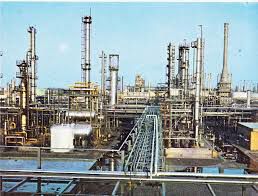1954: THE BRITISH CONSERVATIVE GOVERNMENT AND THE ENDING OF THE NATIONALISATION OF THE ANGLO-IRANIAN OIL COMPANY’S CRISIS.
On 14th April 1954, formal talks began. Negotiations went forward until the middle of May when the three negotiators returned abruptly to London for consultations. ‘The main difficulty was over the question of effective management of the oil fields and refinery,’¹ and how any agreement could be fitted within the terms of the Nationalisation Law. On 20thJune the negotiators were back in Teheran, ‘a formula was, after much heart-searching, found that satisfied the Persian Government’s idea of sovereignty while giving the consortium the control they considered essential over the operations.’² On 5thAugust 1954 the International Consortium and the Iranian delegation announced full agreement.
The companies making up the consortium were the Anglo-Iranian Oil Company, Standard Oil of New Jersey, Standard Oil of California, Gulf Oil Corporation, the Texas Company, Socony Vacuum Company, the Compagnie Francaise des Petroles, and Royal Dutch Shell.
I .O. C. with a 40% share, Royal Dutch/ Shell with 14%, the Compagnie Francaise des Petroles with 6% and five U.S. (major) oil companies each with 8%; Standard Oil of California, Standard Oil of New Jersey, Socony Vacuum, Gulf Oil and Texas Oil.³
The terms of the agreement were:
The Agreement recognises Persian ownership of the oil industry, whereas under A.I.O.C. ‘ s 1933 concession title to the installations passed to the Persians in 1993. But the consortium will in practice have the use of the installations (without any rent) and the Agreement delegates to it a satisfactory measure of managerial powers. The consortium’s tenure is for 25 years in the first instance, with options to renew for three 5-year periods (i.e. a total of 40 years and until 1994). Operations will begin over the whole of the former A.I.O.C. concession (with a few minor adjustments of border); but after the first 25 years the area will decrease at each renewal of option until, by the last 5-year period, the area covered by the consortium’s operations will be about half what it was at the beginning.4
All those companies mentioned already had big interests in the Middle East oil. They were the companies with a ready market for Iranian oil. The Times of London wrote:
Clearly, the British Government and the Consortium Companies’ negotiations have gone a long way to meet Persian aspirations without prejudicing the essential interests of the Companies, old and new, whose job it will be to work the complex arrangements for bringing back Persian oil to the world’s markets.5
On 6th August 1954, the Guardian wrote that the new agreement ‘should suit the interests both of Persia and of oil producers.’6 In regard to the question of Iran paying compensation to the Anglo-Iranian Oil Company, ‘a net interest-free payment of £25 million in ten equal annual instalments beginning on 1st January 1957,’ 7 would be made to the AIOC by Iran. The agreement was signed in 19th September 1954 by the Iranian Minister of Finance and chief negotiator for Iran, Dr. Ali Amini, and on 21st September it was put before the Majlis. On 25th September a joint Majlis-Senate oil commission was set up to study the agreement. On 10th October the debate in the Majlis began. On 21st October, by 113 votes to 5 with 10 abstaining, the Majlis ratified the oil agreement. The bill passed the Senate on 28th October. After the signing by the Shah on 29th October 1954, the bill became law.8
- PRO, London, FO 371/114805, The General Correspondence of the Foreign Office, Sir Roger Stevens, British Ambassador in Teheran to Sir Anthony Eden, the Foreign Secretary, Confidential, 4th June 1955, p. 3.
- Ibid.
- PRO, London, FO 371/ 11076, The General Correspondence of the Foreign Office, Persia, Brief for Lords’ Reading.
- Ibid.
- The Times, 6th August 1954, in ENAYAT, op. cit., p. 181.
- The Guardian, 6th August 1954, in ENAYAT, op. cit., p. 181
- PRO, London, FO 371/110075, The General Correspondence of the Foreign Office, Anglo-Iranian Oil Company support to the stockholders, by Sir William Fraser, Chairman of the Company, Secret, October 1954.
- F. FESHARAKI, Development of the Iranian Oil Industry: International and Domestic Aspects, (London: Praeger Publishers, 1976), Chapter 3.



